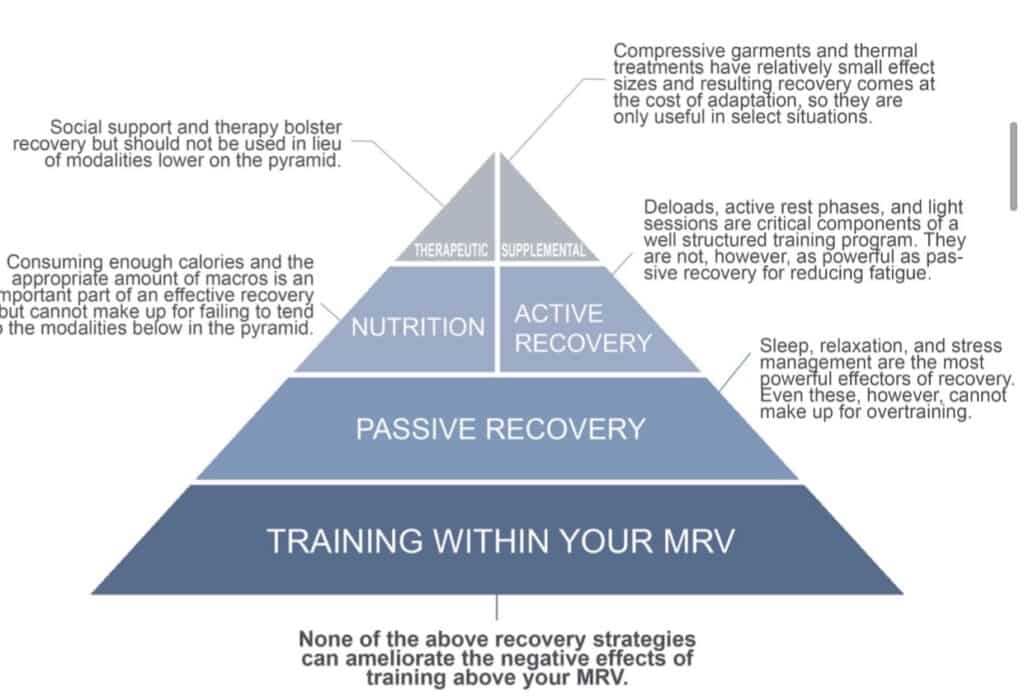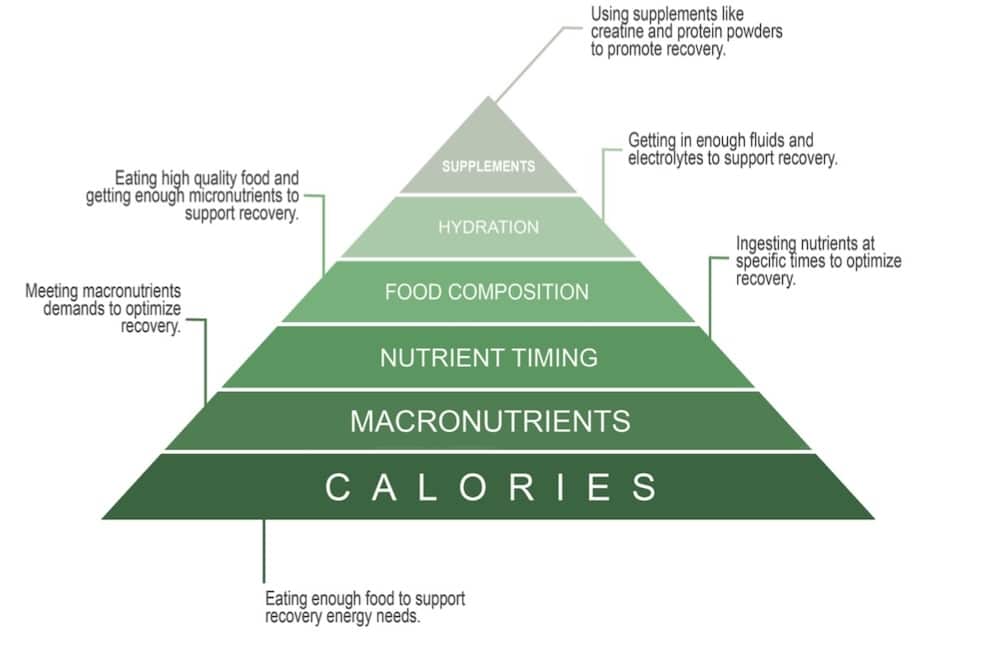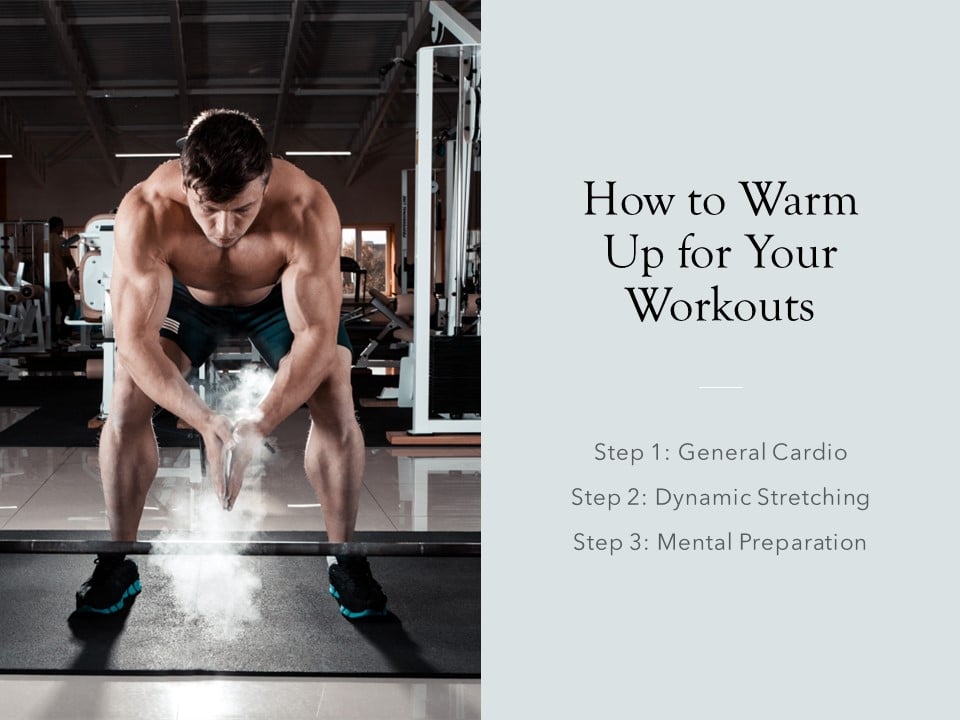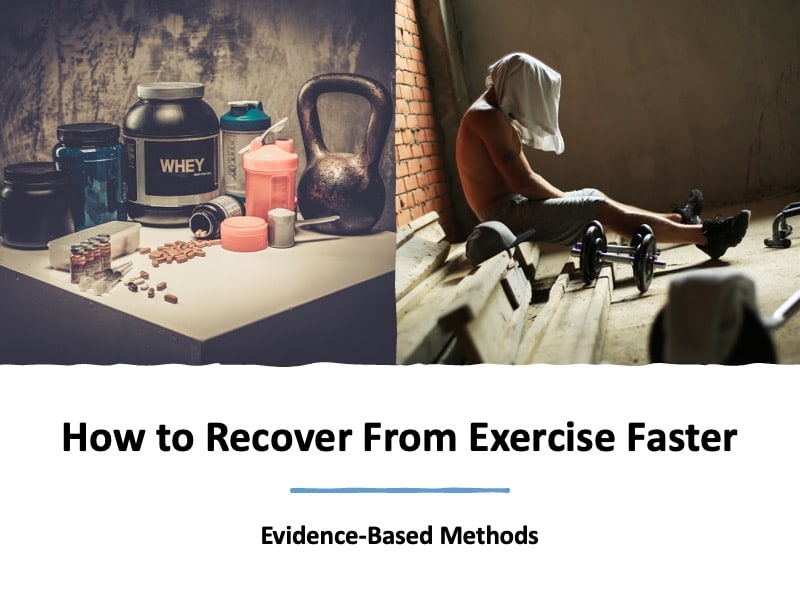How to Recover From Exercise Faster: Evidence-Based Methods
Learning how to recover from exercise faster is just as important as training hard if you want to improve performance, reduce soreness, and stay consistent in your training.
Too many people push themselves through fatigue only to plateau or suffer preventable injuries.
As a professional athlete with over a decade of international playing experience, I’ve learned that the best athletes aren’t just the ones who train the hardest, they’re also the ones who recover the smartest.
Knowing how to help your body recover from exercise efficiently can be the difference between breakthrough performance and chronic fatigue.
From advanced techniques like physiotherapy and contrast therapy to foundational strategies like good nutrition, quality sleep and active recovery, there are evidence-based ways to recover faster from workouts.
If you’re looking for information on how to recover from fatigue after exercise or how to bounce back after strenuous workouts, the tips below will help your body come back stronger, not just sore!
What Is Exercise Recovery?
Exercise recovery is the physiological process your body undergoes to repair tissues, restore energy stores, and adapt to the stress of training (Stozer et al., 2020).
It’s what allows you to get stronger, faster, and more resilient after each workout.
When you train, whether it’s lifting weights, running, or playing a high-intensity sport, your muscles experience microscopic damage, your nervous system gets taxed, and glycogen (stored carbohydrate energy) becomes depleted (Ortenblad, 2013).
Recovery is how your body rebuilds stronger.
It’s not just about feeling less sore; it’s about returning to a high level of performance, mentally and physically.
If you’re wondering how to help your body recover from exercise more effectively, strategies like hydration, sleep, nutrient timing, active movement, and recovery-specific modalities (like massage or cold exposure) all play a role.
Understanding how to recover from fatigue after exercise is essential for consistent progress and injury prevention.
Faster recovery doesn’t mean rushing back into training, it means giving your body exactly what it needs so you can train again at a high level.
How Long Does It Take to Recover from Exercise?
The time it takes to recover from exercise depends on several factors, including the intensity and duration of your workout, your training age, sleep quality, stress levels, and nutrition.
For light to moderate activity, like brisk walking or a moderate-intensity gym session, full recovery typically takes 24–48 hours.
Strenuous exercise, such as heavy strength training, HIIT workouts, or competition-level sports, may require 48–72 hours of recovery, especially if you’re not using specific strategies to recover faster from exercise.
Muscle soreness usually peaks around 24–72 hours after intense physical activity, which is known as delayed-onset muscle soreness (DOMS).
While it’s normal, excessive soreness can delay one’s ability to train consistently.
By supporting your body through active rest, proper hydration, quality sleep, nutrition, and myofascial release strategies, you can recover from strenuous exercise faster, and shrink your recovery timeline can significantly.
Best Ways to Recover From Exercise Faster

If you’re serious about improving performance and preventing burnout, knowing how to recover from exercise faster should be a top priority.
Recovery is where the real growth happens, physically, neurologically, and even hormonally.
Remember, it’s not just about feeling better after a tough workout, but giving your body the tools to adapt and come back stronger.
Whether you’re trying to recover from fatigue after exercise, bounce back from a particularly strenuous session, or just build smarter habits, these evidence-based methods will help you speed up muscle recovery after workouts and stay consistent in your training.
Training Within Your Maximum Recoverable Volume (MRV)
The most overlooked yet most critical way to recover from exercise faster is to stop exceeding what your body can actually recover from.
This is where the concept of Maximum Recoverable Volume (MRV) becomes essential.
MRV refers to the highest amount of training your body can handle while still making progress and recovering fully between sessions (Castelli, 2017).
If you constantly push beyond your MRV, no amount of cold plunges, protein shakes, or massage guns will be enough.
You’ll accumulate fatigue faster than your body can clear it, leading to plateaus, injuries, hormonal disruption, and even overtraining syndrome.
Understanding your MRV requires honest self-assessment.
If you’re feeling sluggish, chronically sore, mentally foggy, or your performance is declining, you’re likely exceeding your recoverable volume.
This applies whether you’re strength training, playing sports, or doing high-intensity cardio.
To help your body recover from exercise and avoid unnecessary setbacks, build your training program around sustainable, repeatable progress, not maximum effort every session. Use deload weeks, track recovery markers (like sleep, HRV, and mood), and prioritize quality over quantity in your workouts.
Learning how to recover from fatigue after exercise starts with respecting your body’s limits.
Once you train within your MRV, every other recovery strategy works better because your body finally has room to recover and grow.
Sleep and Rest
If you’re serious about learning how to recover from exercise faster, optimizing your sleep and rest routines is non-negotiable.
Sleep is when your body does the majority of its repair work such as rebuilding muscle tissue, restoring hormonal balance, and consolidating motor learning from training.
Nighttime Sleep (Aim for 7–9 Hours)
Most active individuals need at least 7–9 hours of sleep per night to fully recover from strenuous exercise.
Athletes may need even more, closer to 9–10 hours, during high training volumes or competitive seasons.
Deep sleep (stages 3 and 4) is especially critical, as it’s when growth hormone peaks and muscle repair is most active.
Naps: Strategic Boosts for Recovery
There are several benefits of taking naps for recovering faster from exercise.
A short nap (20–30 minutes) during the day can significantly improve mood, reduce perceived fatigue, and aid physical recovery, especially if nighttime sleep is compromised.
Longer naps (up to 90 minutes) can help restore cognitive performance and nervous system balance after intense training blocks or travel-induced sleep disruption.
However, you should try not to nap too close to your nighttime sleep time so you can still get more restful and restorative sleep at night.
General Rest & Stress Management
Beyond just sleep, general rest throughout your day is a key part of how to help your body recover from exercise.
Chronic stress, whether physical or emotional, activates your sympathetic nervous system, increasing cortisol levels and impairing your ability to recover.
Techniques like mindfulness, breathwork, prayer, light walking, and screen breaks help activate your parasympathetic “rest and digest” state, where real recovery happens.
If you’re pushing hard in your workouts but living in a constant state of mental and emotional stress, your recovery will suffer.
To recover from fatigue after exercise and feel energized again, rest must be a daily discipline, not an afterthought.
Nutrition

You can’t out-train a poor recovery diet. If you want to know how to recover from exercise faster and perform consistently, what you eat matters just as much as how you train.
Nutrition provides the raw materials your body needs to rebuild muscle, restore energy, reduce inflammation, and adapt to stress.
By following a clear hierarchy, from total calories to supplements, you can give your body exactly what it needs to bounce back stronger after every workout.
Calories: The Foundation of Recovery
The single most important nutritional factor for recovery is total caloric intake.
Although excessive calorie intake will cause weight gain, without enough calories, your body simply won’t have the raw materials it needs to repair muscle tissue, replenish energy stores, or regulate hormones.
If you’re training hard and wondering why you feel rundown, the first question should be: Am I eating enough to recover from exercise?
Macronutrients: Fueling Repair and Growth
Once you’re eating enough, your next priority should be the right balance of protein, carbohydrates, and fats.
- Protein (at around 1.6–2.2g/kg body weight) is essential for muscle repair.
- Carbohydrates help restore glycogen depleted during strenuous workouts.
- Healthy dietary fats support inflammation control and hormone balance, which are all vital for speeding up recovery after exercise.
While you’re getting your total macronutrient needs dialed in, you should also focus on what you’re eating.
Whole, minimally processed foods rich in micronutrients and antioxidants reduce oxidative stress and support your immune system, both of which are taxed after hard training.
Think: lean proteins, leafy greens, colorful vegetables, fruits, whole grains, and anti-inflammatory fats like olive oil and fatty fish.
Nutrient Timing: Strategic Refueling Windows
Although not as critical as overall intake, when you eat can help your body recover from fatigue after exercise more efficiently.
Consuming protein and carbohydrates within 1–2 hours post-workout can increase muscle protein synthesis and speed up glycogen replenishment (Margolis et al., 2020).
This is a small advantage, but one that matters for athletic performance and daily training consistency.
Hydration: Supporting Every Recovery Pathway
Proper hydration is often overlooked, but it’s critical if you’re trying to recover from strenuous exercise.
Fluids support digestion, circulation, nutrient delivery, and temperature regulation.
Even mild dehydration impairs muscle recovery, delays soreness resolution, and increases the perception of fatigue (Cleary et al., 2006).
Electrolytes can be especially helpful during heavy training blocks.
Best Supplements for Exercise Recovery

While there are countless supplements marketed for recovery, only a few have consistently shown real benefits for helping your body recover from exercise faster.
In my opinion, these are the three best supplements for muscle recovery as they are well-studied, accessible, and effective when paired with proper training and nutrition.
While there are other supplements that may aid in recovery — like tart cherry extract, omega-3s, or magnesium — these three are the most foundational and impactful when looking to recover from strenuous exercise efficiently. Just remember: they work best when the basics like sleep, hydration, and overall nutrition are already dialed in.
Protein Powder
Consuming a protein powder supplement, whether whey or plant-based, is one of the most effective ways to meet your daily protein needs, especially after intense training.
A quality protein supplement offers a convenient protein source and helps stimulate muscle protein synthesis, supports tissue repair, and can reduce soreness when taken post-exercise.
Comparing whey vs. plant protein uncovers distinct benefits for recovering from exercise faster.
Whey protein is fast-digesting and high in leucine, which makes it ideal for jumpstarting the muscle-building process right after a workout.
On the other hand, plant-based protein powders are often easier on the stomach, more alkaline, and a great option for those with dairy sensitivities or following a vegan diet.
Both can be effective tools to help your body recover from exercise faster, and the best choice depends on your individual needs and preferences.
Creatine Monohydrate
Creatine monohydrate is one of the most researched supplements in sports nutrition.
It not only boosts strength and power output during training, but it also improves recovery after exercise by supporting ATP regeneration and reducing muscle damage.
Taking 3-5 grams daily is a proven way to support performance and recovery.
Amino Acid Supplements
If you’re looking for targeted supplements to support recovery between workouts, amino acid supplements like EAAs and BCAAs can be helpful, particularly when protein intake is inconsistent or during fasted training sessions.
- Essential Amino Acids (EAAs) include all nine amino acids your body can’t produce, making them more effective than BCAAs for stimulating muscle repair and growth.
- Branched-Chain Amino Acids (BCAAs) may help reduce perceived soreness, but their benefits are limited without complete protein support.
Pre and Post-Workout Routines
Never underestimate the importance of a good pre-and post-workout routine.
These routines are your key to being prepared and in control of your body’s recovery.

Start with a dynamic warm-up, which involves stretching parts of your body dynamically, such as leg swings, squats, circles, etc.
The more you move your body, the more prepared it will be for whatever comes next.
After your workout, it’s crucial to cool down and slow things right down.
Focus on cooling down and stretching out each muscle group you have worked on to give it cues that you finished your workout so it can rest and recover.
Stretching is one of the simplest and most effective actions you can do after a workout to get better results.
Physiotherapy
Physiotherapy is a crucial component of any workout regimen, especially if you are experiencing persistent pains or your flexibility is not where it needs to be.
Physiotherapists (also known as physical therapists in the United States) can work with you to manipulate your muscles and boost your range of motion while also training you on correctly supporting your body during workouts.
Their expertise can help identify and work with problem areas to reduce the likelihood of injuries or to speed up recovery, ensuring you don’t lose time to avoidable issues.
To learn more, you can book a physio appointment at The Alignment Studio, for example, or your local physiotherapist’s office to make physiotherapy a part of your health and wellness regimen.
Massage
Whether you massage using a massage gun, book a massage with a massage therapist, or use a massage chair, for example, the act of massaging your muscles can provide a sense of relief and relaxation.
Massaging your muscles using a massage gun, foam roller, or any other self-massage tools at home can help you relieve stiffness, soreness, and muscle tension.
Likewise, there are many benefits of massages with a therapist that can help alleviate problem areas and reduce stress, allowing your body to rest, relax, and help you recover faster from your workouts.
Heat and Ice
Thermal therapies are simple yet powerful tools to help your body recover from exercise and reduce muscle fatigue.
- Heat is best used before a workout or strenuous activity to increase blood flow and loosen up muscles. Applying heat to a specific area, such as with a heating pad or warm shower, can help reduce stiffness and improve mobility during training.
- Ice therapy, on the other hand, is most effective immediately after intense exercise. It helps reduce inflammation, minimize muscle soreness, and support the recovery process. This is why ice baths and cold packs are commonly used within the first 24 hours post-workout. However, you shouldn’t rely on ice to help you recover from exercise because inflammation is a natural body response that helps you grow and adapt to exercise.
- Contrast showers, which alternate between hot and cold water, are one of my favorite recovery strategies that can boost circulation and reduce soreness. Switching between warm and cold water for several rounds may help flush metabolic waste from the muscles and speed up recovery. Aim for 2-3 minutes of hot water followed by 2-3 minutes of cold, repeating for 3 to 5 cycles.
Final Thoughts: How to Recover Faster From Exercise Fatigue

Recovering from exercise is not just about feeling less sore, it’s about giving your body what it needs to adapt, rebuild, and come back stronger.
If you constantly feel run down or don’t see progress, it’s time to reassess how you’re supporting your recovery.
From training within your maximum recoverable volume to prioritizing sleep, nutrition, hydration, and smart supplementation, each piece plays a role in helping your body recover from exercise faster.
Managing stress, scheduling rest days, and learning to listen to your body are just as important as the workouts themselves.
The more you invest in recovery, the more consistent and sustainable your results will be.
Train hard, recover smart, and let your body do what it was designed to do: grow, heal, and perform!
Pro Tip: If you’re serious about maximizing performance and learning how to recover from exercise faster at a deeper, science-backed level, Recovering from Training: How to Manage Fatigue to Maximize Performance by Dr. James Hoffmann, Dr. Mike Israetel, and Dr. Melissa Davis is one of the best resources available. Grounded in peer-reviewed research but written for everyday athletes and coaches, this book explores the physiology of fatigue, real-world recovery strategies, and how to structure training for long-term success.
Last update on 2025-04-15 / This article includes affiliate links/Images via Amazon Product Advertising API. I may earn commissions on purchases made through these links.




